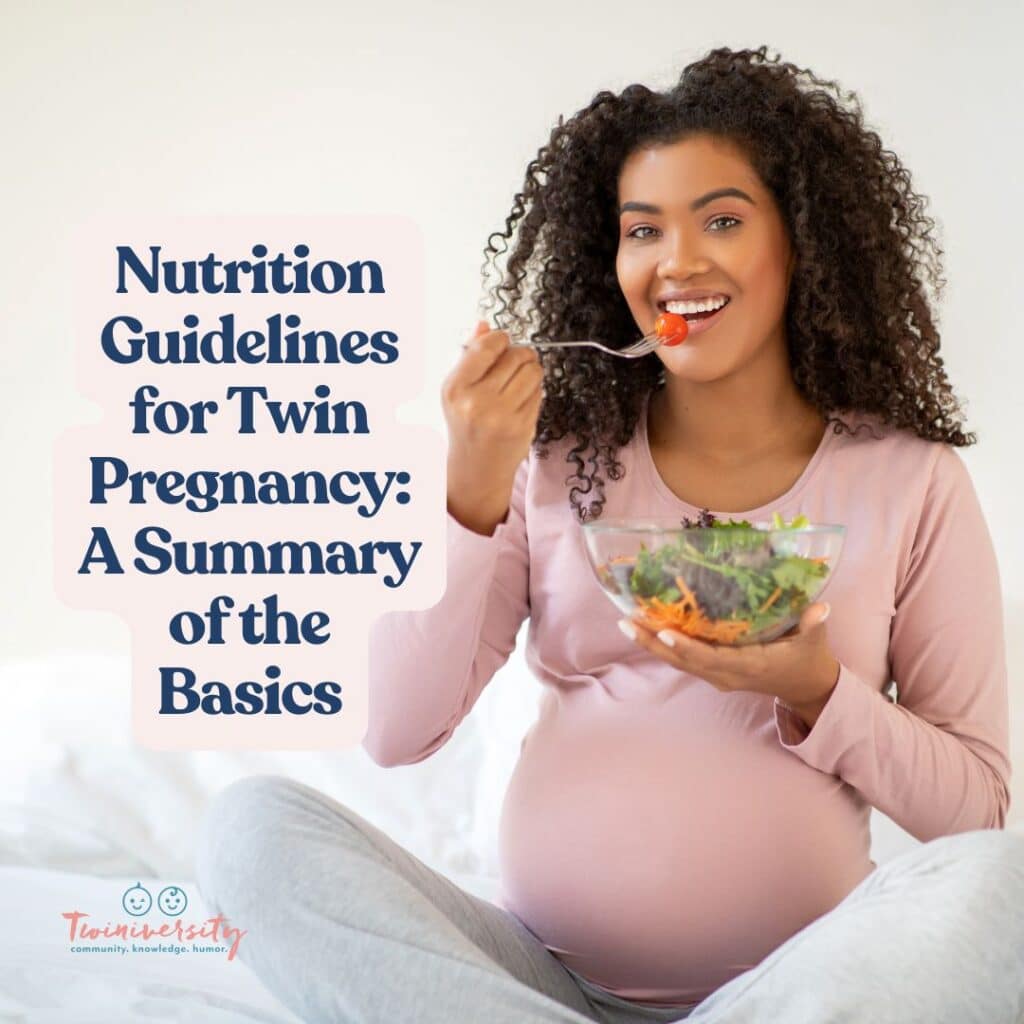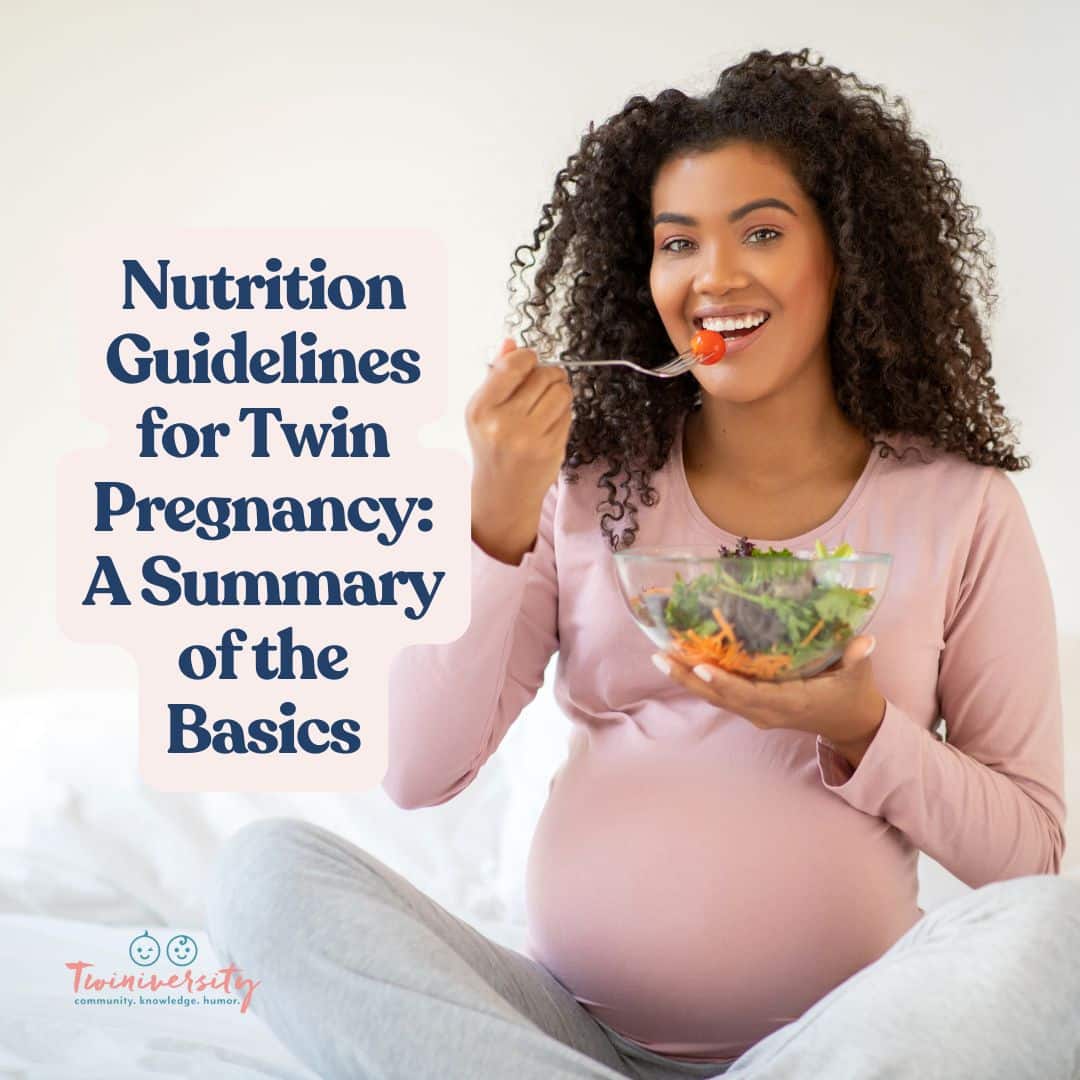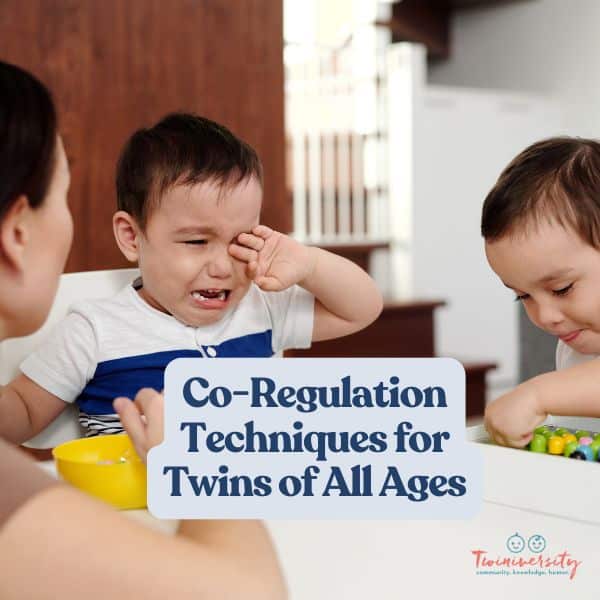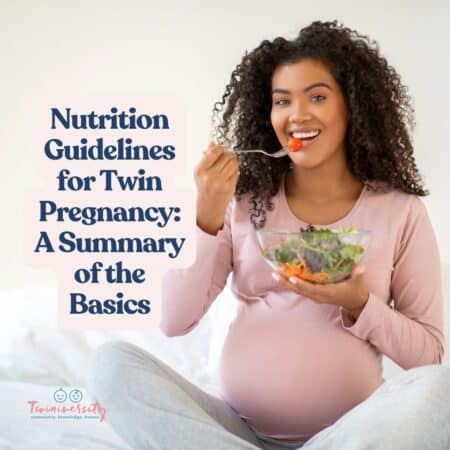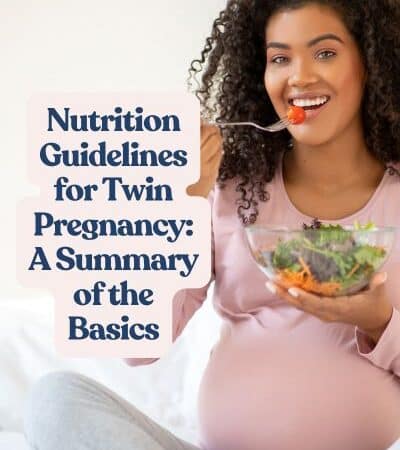
When you’re growing two little humans inside of you, there are some additional measures to consider when it comes to your nourishment. That’s why we’ve rounded up a quick summary of the need-to-knows when it comes to nutrition guidelines for twin pregnancy.
Disclaimer: All content on this website, including medical opinions and any other health-related information, is for informational purposes only and should not be considered to be a specific diagnosis or treatment plan for any individual situation. Use of this site and the information contained herein does not create a doctor-patient relationship. Always seek the direct advice of your own doctor in connection with any questions or issues you may have regarding your own health or the health of others.
Taking care of yourself nutritionally is a constant work in progress. Am I right? We’re told to eat this, remove or limit that…
Then you throw the ultimate curveball to that careful planning: expecting twins. And you’re left wondering: Okay, well what does that mean for my dietary needs?! Can I eat WHATEVER I want? After all, you’re growing two humans, right?
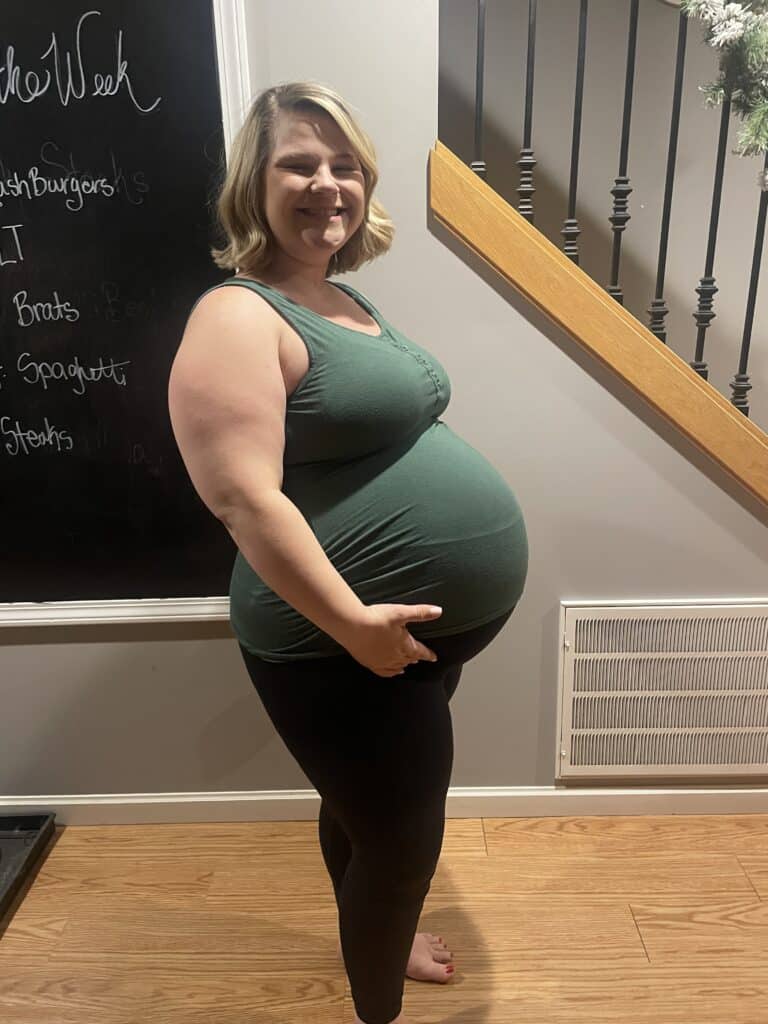
As fun as it would be to dominate the all-you-can-eat buffet, there’s a bit more complexity to twin pregnancy nutrition guidelines than you might realize.
So forge ahead in the article to get a glimpse into some of the major considerations to make with your twin pregnancy nutrition.
1. Talk to your doctor
Your doctor (or other healthcare professional) will be your best friend when it comes to the health of you and your twins. They’ll be able to give you personalized nutritional recommendations based on your unique medical history and conditions as well as the status of your twin pregnancy.
Speaking with your trusted healthcare professional is a vital move in making sure your diet is up to par for what you and your twins need for the journey ahead.
And just because you are having twins, doesn’t mean that your dietary needs will be the same as other expecting twin moms. So if you haven’t already, be sure to check in with your physician to see what specific recommendations they have for your nutrition.
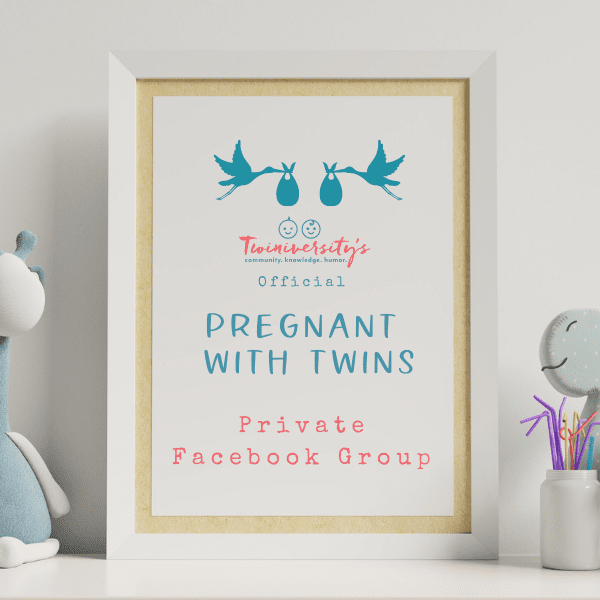
Did you know we have a FREE Facebook group just for expecting twin parents? Hurry and join today to find support from expecting twin mamas who get it!
2. What about calories?
Having double the babies inside of you doesn’t mean that you double your calories. Instead, the specific caloric increase you’ll need will depend on your starting body mass index (BMI). Medical professionals estimate that twin pregnancies require about a 40% increase in calories (on average).
The amount of extra calories you need also changes slightly as you progress in your pregnancy. For example, in the first trimester, there’s not as drastic of an increase as there is in the third trimester.
According to the American College of Gynecology and Obstetrics (ACOG), moms carrying multiple babies should increase their caloric intake by about 300 calories per baby. That’s not as much as you might think!
What does 600 calories look like? Well, I can tell you the double cheeseburger at a certain favorite franchise is 440 calories. And remember, the exact number of calories is just a small portion of the importance of health during this time.
Prenatal vitamins are excellent to supplement what is missed and/or compensate for the nutrition your body needs for this journey. (More on those later!)

3. Get enough protein
You may have been told already how important it is to get enough protein during your twin pregnancy! And here’s why: Consuming enough protein helps ensure that your body has enough amino acids to maintain healthy development of the fetuses and the placenta(s).
Most medical researchers agree that the ideal breakdown of where to get your energy from in twin pregnancy is as follows:
- 20% from protein
- 40% from complex carbohydrates
- 40% from fats
Of course, you may have some food aversions or morning sickness during this time, making protein consumption a bit challenging.
I didn’t have morning sickness, but I did have a strong aversion to meat. All kinds of meat, really. And my doctor wanted me to have 90 grams of protein a day to help with my high blood pressure (caused by pregnancy). To hit that number, I had leaned on my protein enhanced chocolate milks. Not your body building protein shakes. The taste of that also made me want to vom-bomb.
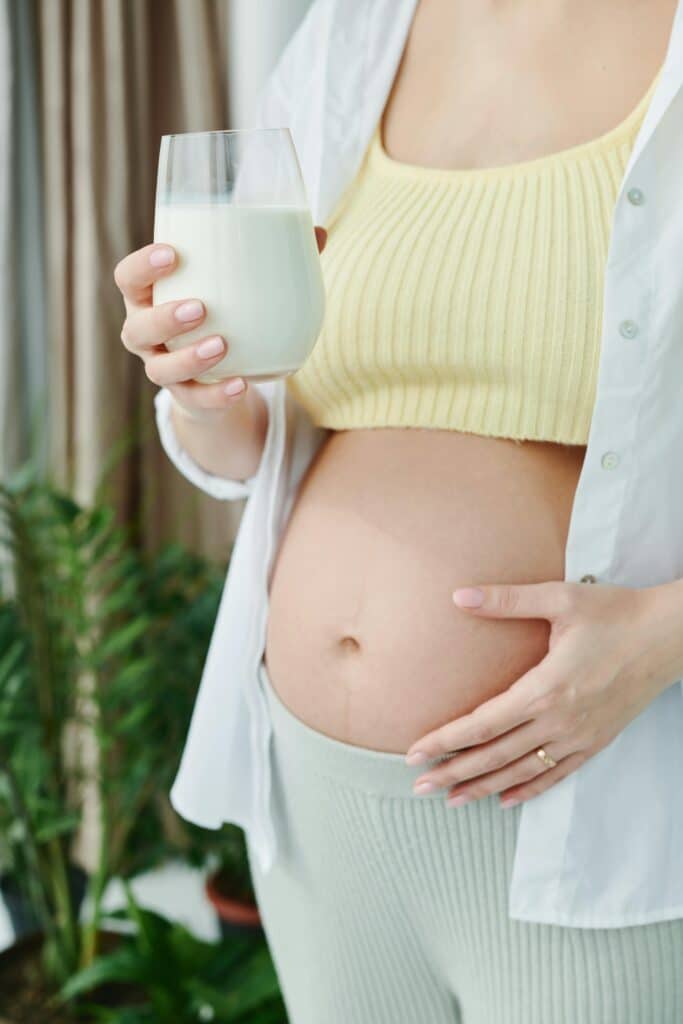
Fairlife Chocolate Milk shake was the only thing I could tolerate. With 30 grams of protein per bottle, I’d have one per meal to hit that 90 number.
The exact grams of protein you’ll need may be higher or lower than this, but Brigham and Women’s Hospital recommends a ballpark estimate of 100 daily grams of protein for twin pregnancies. Again, consult your doctor for a game plan that meets your specific nutritional guidelines for twin pregnancy.
4. What about prenatal vitamins?
Generally speaking, it’s recommended to take the same prenatal you would take for a singleton pregnancy. That said, on top of your standard prenatal vitamin, for a twin pregnancy, you’ll also be advised to take additional folic acid and iron. More on these next!
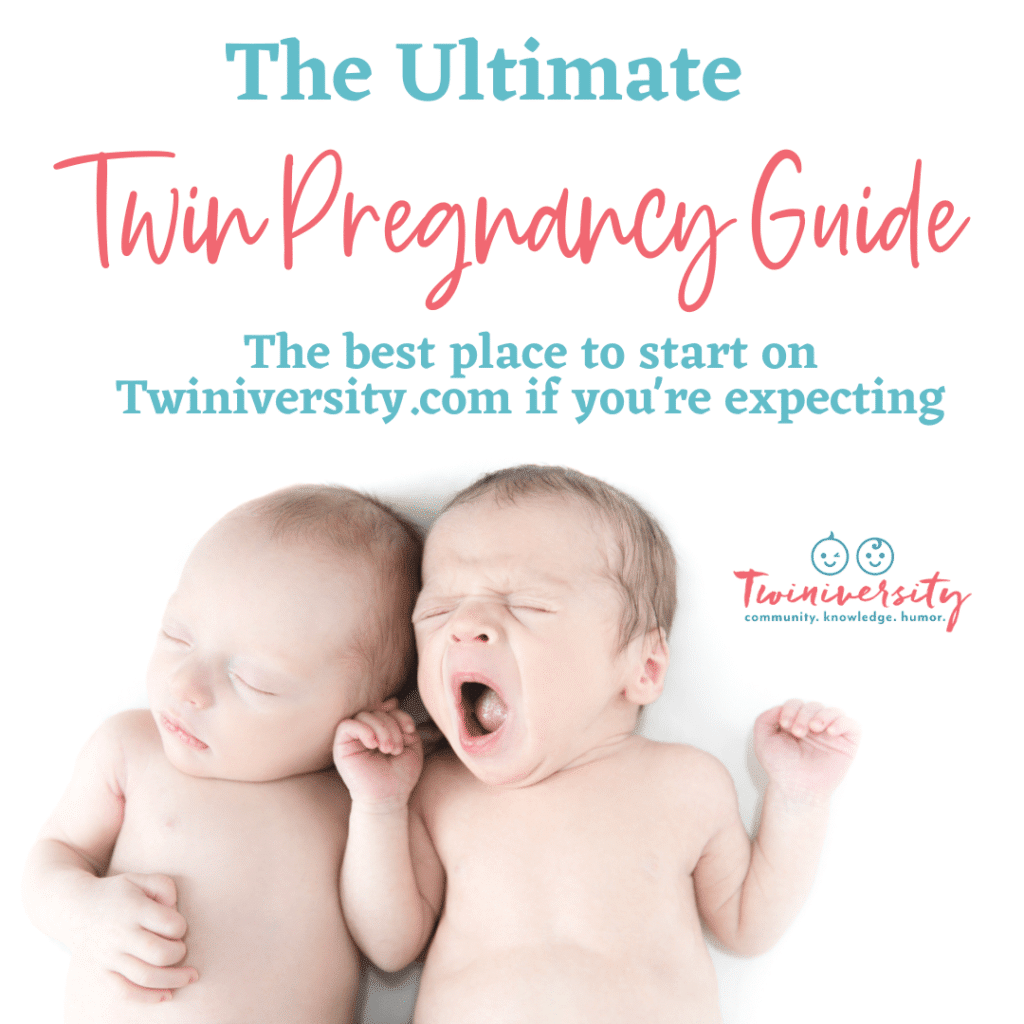
Pregnant with twins and not sure where to start? Visit the Ultimate Twin Pregnancy Guide to find all the top articles and resources to get you ready for twins. While you’re at it, check out our expecting twin classes and Twiniversity shop!
5. You’ll likely need extra folic acid and iron
Folic acid is a type of B vitamin that’s very important in early pregnancy. Most current medical research shows that folic acid is vital for reducing the incidence of neural tube defects. (These are birth defects that are related to the brain and spinal cord.)
Certain foods like dark leafy greens like spinach are high in folate. But most women won’t be able to get enough folate from food alone. That’s why across global guidelines, it’s recommended that pregnant women take a folic acid supplement with 400 µg.
But for twin pregnancies, the dosing may be even higher. This is because women carrying twins are 8 times more likely to develop anemia caused by folate deficiency.
Like folate, iron is also important for helping to ward off anemia during pregnancy.
Studies have found a correlation between low birth rate and preterm birth caused by iron deficiency. Low iron may also be connected to developing preeclampsia.
So be sure to check with your doctor early on to get guidance on exactly how much folic acid and iron you should be taking during your twin pregnancy.

6. Boost your vitamin D and calcium
Remember all those milk commercials back in the 90s? “Milk does the body good.” Milk has been associated with calcium and vitamin D and being important for your bones. This is even more true when pregnant.
The Royal Women’s Hospital points out the importance of Vitamin D in supporting babies’ bone growth! So soak up those sun rays and eat those vitamin D-rich foods like: dairy, mackerel, sardines, and eggs.
Of course, if oily fish doesn’t agree with your pregnant palette, but there are also many dairy items and other foods that are fortified with vitamin D.
As for calcium, research shows that calcium supplementation is important for helping to avoid hypertensive disorders during pregnancy (many of which can lead to preterm birth) as well as maintaining strong bones.
You can get calcium from milk, yogurt, cheese, leafy green veggies like broccoli and kale, as well as tofu and almonds.
Of course, if your obstetrician thinks you may not be getting enough of these two vitamins from your diet alone, they may advise you to take supplements.
7. What to know about iodine for pregnancy
Another mineral important for pregnancy is iodine as it plays an important role in thyroid hormone regulation.
Having an iodine deficiency in pregnancy can cause issues with hypothyroidism for both mom and baby. Nowadays, many prenatal vitamins already include iodine, but not all of them do. So check with your doctor about which prenatal vitamin is best for you and be sure to ask them about their recommendation for iodine supplementation if necessary.
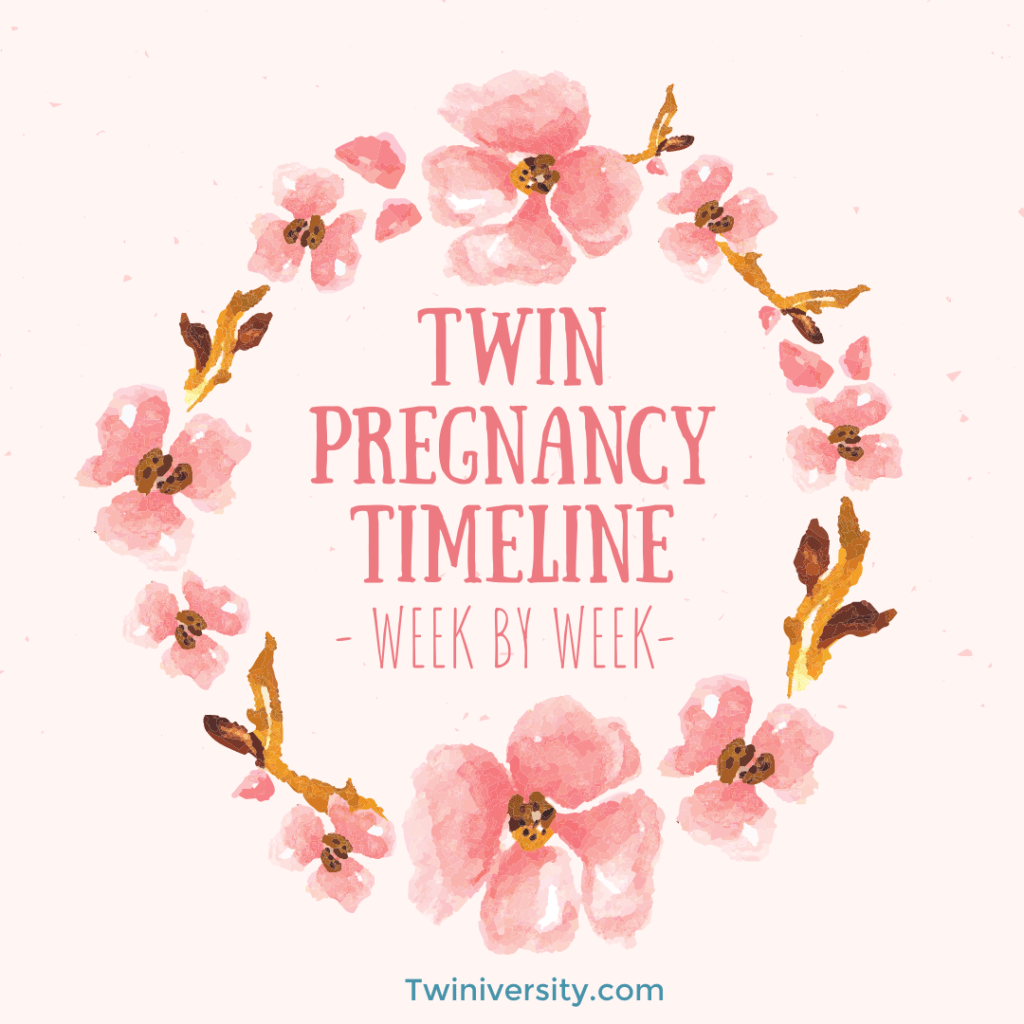
If you just heard that second heartbeat for the first time, or you know it’s been two for a while, you need to read our twin pregnancy week by week timeline to help you learn what happens week by week with twins. Click here to learn more… and while you’re at it, check out our expecting twins classes and twin parent coaching services.
Final thoughts on nutrition guidelines for twin pregnancy
These nutrition guidelines for twin pregnancy are a great starting point for understanding your nutritional needs with two on the way. Based on your unique health goals and pregnancy, your needs may vary slightly.
Ultimately, your doctor should suggest a custom dietary plan for your twin pregnancy. And if they don’t do that automatically, be sure to speak up and ask them!
Wishing you a smooth and happy pregnancy journey as a mom of multiples (MoM)!
Want to read more about what to expect during twin pregnancy? Check out these articles too!
- Seasonal Nutrition: Twin Pregnancy Eating Guide
- Doctor’s Appointments in Twin Pregnancy: What to Expect
- Can I Stop Morning Sickness?

Stephanie Miller is the proud mom of twin cyclones Zach and Carter. Every day in the Miller house, you’ll find rooms turned over, floors covered in bits of Lego and puzzle pieces (mind your step), and the sound of “Brown Bear Brown Bear” read over and over, and over again. You’ll typically find her being used as the seat to reading time for the two bookworms, covered in bubble solution as they try to excel in their Bubble Wand skills, or being the voice to command Alexa for their favorite tunes. She and her husband are working on their traveling skills cause she can’t wait to show them the amazing world that is out there for them.

